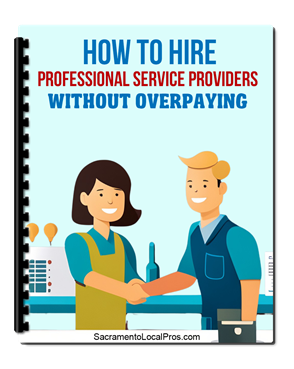Choosing the right home is one of the most significant decisions you can make, especially in today’s competitive housing market.
With so many factors to consider, it’s essential to ask the right questions to ensure the property meets your needs, lifestyle, and long-term plans.
By taking the time to evaluate these key aspects, you’ll feel more confident in your decision and secure the home that’s truly meant for you.
Read on to uncover the questions that can guide you to your perfect home.
1)) What Is The Total Cost Of The Home, Including Taxes And Fees?
The total cost of a home goes beyond the asking price and includes additional expenses such as property taxes, closing costs, homeowners association (HOA) fees, and insurance premiums.
It’s crucial to account for these costs upfront to avoid unexpected financial strain after purchase.
Understanding these factors ensures that you stay within your budget and have a clear picture of what you'll be paying over time.
By factoring in all expenses, you can make an informed decision that aligns with your financial goals and long-term stability.
2)) How Competitive Is The Current Real Estate Market In This Area?
Understanding the competitiveness of the real estate market in your desired area is essential before committing to a purchase.
Highly competitive markets often lead to bidding wars, limited inventory, and rising home prices, which can impact your ability to secure a property within your budget.
Researching local market trends, consulting with a real estate agent, and analyzing recent home sales can provide valuable insights into the level of competition.
By assessing these factors, you'll be better equipped to strategize your approach and determine whether the timing is right for making an offer.
A clear understanding of the market will help you prepare for the challenges ahead and position yourself for success.
3)) Are There Any Known Issues With The Property Or Its History?
Before making an offer on a property, it's essential to uncover any known issues or concerns related to the home or its history.
Structural problems, water damage, pest infestations, or outdated electrical systems could lead to costly repairs in the future.
Understanding the property's history, such as past renovations, legal disputes, or prior ownership changes, can provide critical context about its condition and value.
A thorough inspection by a licensed home inspector and an honest discussion with the seller can help bring these details to light.
By addressing these potential red flags early on, you can avoid unpleasant surprises and feel more confident in your investment.
4)) What Are The Local Property Taxes, And How Have They Changed Over Time?
Local property taxes play a significant role in the overall cost of homeownership, and understanding their rates is vital when evaluating a potential purchase.
These taxes are determined by local governments and are typically based on the assessed value of the property.
Over time, property tax rates can change due to factors such as economic fluctuations, community development, or shifts in municipal budgets.
Researching historical trends and consulting with local tax authorities can provide clarity on current rates and future expectations.
By gaining insight into property taxes and their trajectory, you’ll have a more accurate financial forecast and be better prepared to manage long-term expenses tied to your new home.
5)) How Good Are The Local Schools And Amenities?
The quality of local schools and amenities can significantly influence your overall satisfaction with a neighborhood and the long-term value of your investment.
For families with children, access to highly-rated schools is often a top priority, as it directly impacts educational opportunities.
Beyond schools, amenities such as parks, grocery stores, healthcare facilities, and recreational centers contribute to the convenience and livability of the area.
Proximity to these features not only enhances your day-to-day lifestyle but also boosts the desirability of the location among future buyers if you decide to sell.
Taking the time to evaluate these factors ensures that your potential new home is surrounded by resources that support your needs and enhance your quality of life.
6)) What Is The Neighborhood Like In Terms Of Safety And Community?
The safety and sense of community in a neighborhood are critical factors to consider when choosing a home.
A safe neighborhood not only provides peace of mind but also enhances the overall quality of life, especially for families and individuals who value security.
Community atmosphere is equally important, as engaging with friendly neighbors and participating in local events can foster a sense of belonging and shared purpose.
Researching crime rates, exploring the area at different times of the day, and speaking with current residents can provide valuable insights into these aspects.
By prioritizing safety and community, you can ensure that your new neighborhood meets your expectations for both security and connection.
7)) Are There Any Planned Developments Or Zoning Changes Nearby?
Planned developments and zoning changes in the vicinity of a property can have a significant impact on its value and the lifestyle of its future owners.
New constructions or infrastructure projects, such as shopping centers, highways, or residential complexes, can enhance convenience and boost property values.
On the other hand, developments that cause congestion, noise, or changes to the neighborhood’s character may detract from its appeal.
Zoning changes, too, can influence the types of businesses or constructions permitted near your home, potentially altering the area’s functionality and aesthetics.
Investigating local development plans, communicating with municipal offices, and reviewing community feedback can reveal any upcoming changes that might affect your decision.
Staying informed about these factors ensures you can make a well-rounded choice about your potential investment.
8)) How Old Are The Roof, Plumbing, And Electrical Systems In The Home?
The age and condition of a home’s roof, plumbing, and electrical systems are vital aspects to evaluate before purchasing a property.
These components play a crucial role in the home's safety, functionality, and maintenance costs.
Older roofing may lead to leaks or structural damage, while outdated plumbing can result in water pressure issues or costly repairs due to pipe failures.
Similarly, aging electrical systems may not meet current safety standards or handle modern energy needs, posing a potential fire hazard.
Requesting documentation on the installation and maintenance of these systems, as well as conducting a professional inspection, can provide clarity on their current state.
Understanding the lifespan and upkeep of these essential systems can help you avoid unexpected expenses and ensure the home is in reliable condition for years to come.
9)) What Are The Typical Utility Costs For This Property?
Understanding the typical utility costs for a property is essential for accurately estimating the total expenses of homeownership.
Utilities such as electricity, water, gas, and trash removal can vary significantly based on the size and energy efficiency of the home, as well as local utility rates.
High utility costs may indicate poor insulation, outdated appliances, or inefficient heating and cooling systems, which could lead to additional expenses in the future.
Requesting past utility bills or discussing average costs with the seller provides valuable insight into what to expect.
By factoring in utility costs, you can better plan your budget and ensure the property aligns with your financial expectations.
10)) How Long Has The House Been On The Market?
The length of time a house has been on the market can provide valuable information about the property and its potential appeal to buyers.
Homes that have been listed for an extended period may indicate overpriced listings, issues with the property's condition, or a lack of demand in the area.
Conversely, newly listed homes may generate higher interest and competition among buyers.
It's important to investigate the reasons behind a prolonged listing and assess whether any concerns can be addressed or negotiated into the purchase.
By understanding this timeline, you can make a more informed decision about whether the property is a suitable fit for your needs and expectations.
11)) Are There Homeowners' Association Fees, And What Do They Cover?
Homeowners' Association (HOA) fees are an important consideration when purchasing a property within a managed community.
These fees typically fund the maintenance and upkeep of shared spaces, such as parks, pools, fitness centers, landscaping, and other community amenities.
They may cover services like trash collection, snow removal, and certain utilities, depending on the specific HOA.
It’s crucial to review the association’s budget and policies to understand exactly what is covered and whether any special assessments or changes in fees are anticipated.
Knowing the scope and value provided by HOA fees allows you to evaluate whether the costs align with your needs and preferences for community living.
12)) What Is The Average Resale Value Of Homes In This Neighborhood?
The average resale value of homes in a neighborhood is a critical factor to investigate when considering a property purchase.
It provides insight into the area's market stability, demand, and potential for future profit or loss.
Neighborhoods with strong resale values typically feature desirable amenities, good schools, low crime rates, and proximity to employment hubs, which can attract consistent buyer interest.
Researching the market trends, recent sales data, and historical price appreciation in the area gives valuable context for understanding whether the investment aligns with your financial goals.
A strong average resale value not only protects your investment but also ensures a greater likelihood of a positive return if you decide to sell in the future.
13)) Have There Been Any Renovations, And Were They Permitted?
Renovations can greatly impact a home's value, functionality, and appeal, making it essential to verify if any updates have been made to the property and whether they were properly permitted.
Permitted renovations ensure that the work complies with local building codes and safety standards, reducing the risk of unforeseen structural or legal issues.
Unpermitted renovations, on the other hand, could result in costly repairs, fines, or complications when reselling the property.
It's advisable to request documentation detailing any renovations and permits, as well as inspecting the quality of the work completed.
By confirming the legitimacy and scope of renovations, you can make a more confident decision about the property’s condition and its long-term reliability.
14)) What Is Included In The Sale?
When purchasing a property, it is vital to clarify what items are included in the sale, such as appliances, fixtures, or other features.
Standard items like built-in ovens, dishwashers, and light fixtures are often included, but exclusions can vary widely between sellers.
It's important to verify whether appliances such as washers, dryers, or refrigerators, as well as furniture or outdoor items, are part of the deal.
Reviewing the sales contract carefully and discussing these terms with the seller ensures no misunderstandings later.
Knowing exactly what is included helps avoid unexpected expenses and ensures the property meets your needs upon moving in.
15)) What Contingencies Should Be Included To Protect You As A Buyer?
Contingencies are essential safeguards to include in a real estate purchase agreement to protect you as a buyer.
Common contingencies include a home inspection contingency, which allows you to renegotiate or back out of the deal if significant issues are found during the inspection, and a financing contingency, which ensures the purchase is subject to your ability to secure a mortgage.
An appraisal contingency protects you if the home's appraised value is less than the agreed price, while a sale of home contingency may be critical if you need to sell your current property before buying a new one.
These contingencies provide flexibility and security, giving you peace of mind throughout the buying process while minimizing financial risks.
Conclusion
Purchasing a property is a significant investment, and making informed decisions every step of the way can help ensure a successful and satisfying outcome.
By asking the right questions and thoroughly understanding aspects like HOA fees, resale values, renovations, included items in the sale, and necessary contingencies, you set yourself up for a smoother buying process.
Staying proactive and well-prepared allows you to protect your interests, avoid surprises, and feel confident in selecting a home that aligns with your goals and lifestyle.
Are You Looking For The Best Real Estate Companies In Sacramento Ca? Click Here To Get In Touch With Top Real Estate Agents Today!
Download Our Free E-book!








